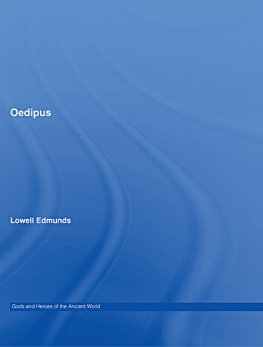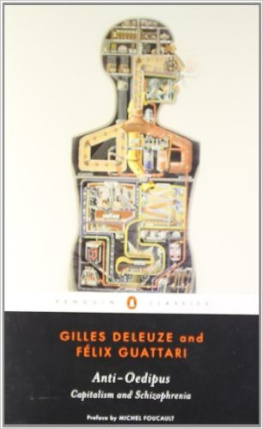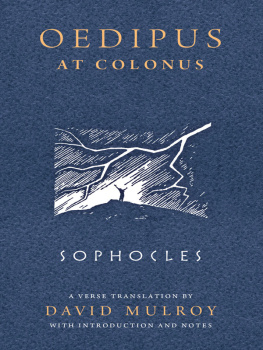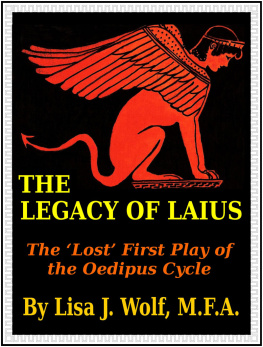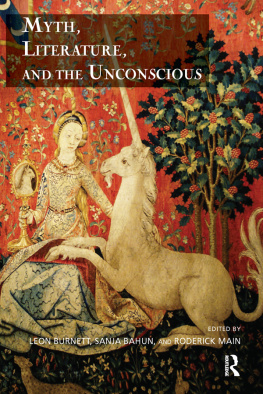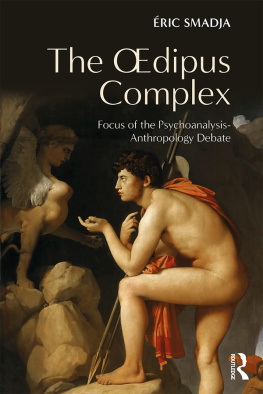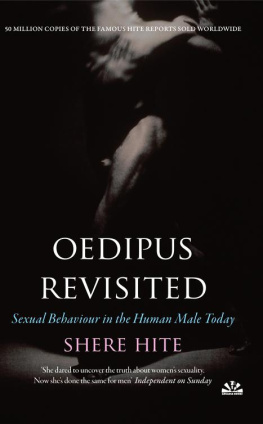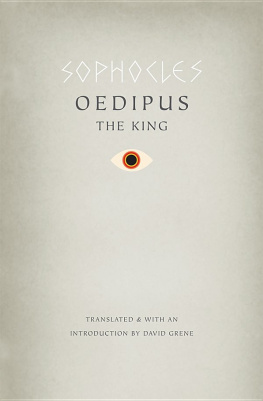OEDIPUS
The story of Oedipus, the most meaning-laden of myths, has traveled down through history in many guises and forms. Can any one version claim to be definitive? Lowell Edmunds authoritative survey takes variation as the force driving the myths longevity and popularity. Refraining from seeking for an original form, Edmunds relates the changes in content to changes in meaning, eschewing the notion that one particular version of the myth can be set as standard.
Oedipus traverses the long history of the myth, from the earliest, pre-tragic Oedipus through fifth-century tragedy, Rome and the Middle Ages, the Renaissance and the Enlightenment, to Oedipus in the nineteenth and twentieth centuries. In illustrating this long history the book shows, in one perspective, a certain continuity, and, in another, a discontinuity followed by a recovery. The agent of continuity is the Roman Seneca, whose Oedipus looked back to Greek models, had some currency in the Middle Ages, found many Renaissance imitators, and still sometimes reappears, as in Ted Hughes adaptation (1969). But the European Middle Ages, Edmunds shows, mark a striking discontinuity in the tradition: for about a millennium, the Oedipus of Greek tragedy is practically forgotten, not to be rediscovered until the fifteenth and sixteenth centuries. Sophocles Oedipus the King is thereafter destined to become the common text of the Oedipus myth.
Oedipus does what no other volume has done before. It analyzes the long and varied history of the myth from ancient times to the modern day and the broad sweep of media in which it has been represented. Lowell Edmunds Oedipus is truly an indispensable guide to the myth of Oedipus.
Lowell Edmunds is Professor of Classics at Rutgers University and an eminent author and researcher. His most recent publications include Intertextuality and the Reading of Roman Poetry (2001) and Poet, Public and Performance: Essays in Ancient Greek Literature and Literary History (1997).
GODS AND HEROES OF THE ANCIENT WORLD
Series editor Susan Deacy
Roehampton University
Routledge is pleased to present an exciting new series, Gods and Heroes of the Ancient World. These figures from antiquity are embedded in our culture, many functioning as the source of creative inspiration for poets, novelists, artists, composers and filmmakers. Concerned with their multifaceted aspects within the world of ancient paganism and how and why these figures continue to fascinate, the books provide a route into understanding Greek and Roman polytheism in the 21st century.
These concise and comprehensive guides provide a thorough understanding of each figure, offering the latest in critical research from the leading scholars in the field in an accessible and approachable form, making them ideal for undergraduates in Classics and related disciplines.
Each volume includes illustrations, time charts, family trees and maps where appropriate.
Also available:
Zeus
Ken Dowden
Prometheus
Carol Dougherty
Medea
Emma Griffiths
Dionysos
Richard Seaford
Susan Deacy is Lecturer in Greek History and Literature at Roehampton University. Her main research interests are Greek religion, and gender and sexuality. Publications include the co-edited volumes Rape in Antiquity (1997) and Athena in the Classical World (2001), and the monograph A Traitor to Her Sex? Athena the Trickster (forthcoming).
OEDIPUS
Lowell Edmunds

LONDON AND NEW YORK
First published in the USA and Canada in 2006
by Routledge
270 Madison Avenue, New York, NY 10016
Simultaneously published in the UK
by Routledge
2 Park Square, Milton Park, Abingdon, Oxon OX14 4RN
Routledge is an imprint of the Taylor & Francis Group,an informa business
This edition published in the Taylor & Francis e-Library, 2006.
To purchase your own copy of this or any of Taylor & Francis or Routledges collection of thousands of eBooks please go to www.eBookstore.tandf.co.uk.
2006 Lowell Edmunds
All rights reserved. No part of this book may be reprinted or reproduced or utilized in any form or by any electronic, mechanical, or other means, now known or hereafter invented, including photocopying and recording, or in any information storage or retrieval system, without permission in writing from the publishers.
Library of Congress Cataloging-in-Publication Data
Edmunds, Lowell.
Oedipus / Lowell Edmunds.
p. cm.
Includes bibliographical references and index.
1. Oedipus (Greek mythology) I. Title.
BL820.O43E36 2006
809.93351dc22 2006016085
British Library Cataloguing in Publication Data
A catalogue record for this book is available from the British Library
ISBN13: 978-1-134-33127-7 ePub ISBN
ISBN10: 0-415-32934-5 (hbk)
ISBN10: 0-415-32935-3 (pbk)
ISBN10: 0-203-39135-7 (ebk)
ISBN13: 978-0-415-32934-7 (hbk)
ISBN13: 978-0-415-32935-4 (pbk)
ISBN13: 978-0-203-39135-8 (ebk)
CONTENTS
SERIES FOREWORD
For a person who is about to embark on any serious discourse or task, it is proper to begin first with the gods.
(Demosthenes, Letters 1.1)
WHY GODS AND HEROES?
The gods and heroes of classical antiquity are part of our culture. Many function as sources of creative inspiration for poets, novelists, artists, composers, filmmakers and designers. Greek tragedys enduring appeal has ensured an ongoing familiarity with its protagonists experiences and sufferings, while the choice of Minerva as the logo of one of the newest British universities, the University of Lincoln, demonstrates the ancient gods continued emblematic potential. Even the world of management has used them as representatives of different styles: Zeus and the club culture for example, and Apollo and the role culture: see C. Handy, The Gods of Management: who they are, how they work and why they fail (London, 1978).
This series is concerned with how and why these figures continue to fascinate and intrigue. But it has another aim too, namely to explore their strangeness. The familiarity of the gods and heroes risks obscuring a vital difference between modern meanings and ancient functions and purpose. With certain exceptions, people today do not worship them, yet to the Greeks and Romans they were real beings in a system comprising literally hundreds of divine powers. These range from the major gods, each of whom was worshipped in many guises via their epithets or surnames, to the heroes deceased individuals associated with local communities to other figures such as daimons and nymphs. The landscape was dotted with sanctuaries, while natural features such as mountains, trees and rivers were thought to be inhabited by religious beings. Studying ancient paganism involves finding strategies to comprehend a world where everything was, in the often quoted words of Thales, full of gods.
In order to get to grips with this world, it is necessary to set aside our preconceptions of the divine, shaped as they are in large part by Christianised notions of a transcendent, omnipotent God who is morally good. The Greeks and Romans worshipped numerous beings, both male and female, who looked, behaved and suffered like humans, but who, as immortals, were not bound by the human condition. Far from being omnipotent, each had limited powers: even the sovereign, Zeus/Jupiter, shared control of the universe with his brothers Poseidon/Neptune (the sea) and Hades/Pluto (the underworld). Lacking a creed or anything like an organised church, ancient paganism was open to continual reinterpretation, with the result that we should not expect to find figures with a uniform essence. It is common to begin accounts of the pantheon with a list of the major gods and their function(s) (Hephaistos/Vulcan: craft; Aphrodite/ Venus: love; and Artemis/Diana: the hunt and so on), but few are this straightforward. Aphrodite, for example, is much more than the goddess of love, vital though that function is. Her epithets include

